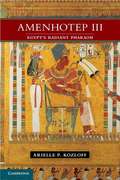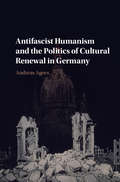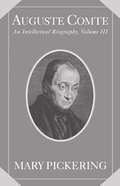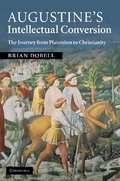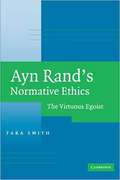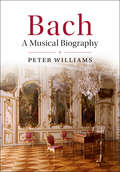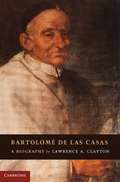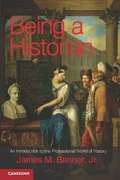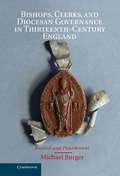- Table View
- List View
Accounting for Ministers
by Samuel BerlinskiAccounting for Ministers uses the tools of modern political science to analyse the factors which determine the fortunes of Cabinet ministers. Utilising agency theory, it describes Cabinet government as a system of incentives for prime ministerial and parliamentary rule. The authors use a unique dataset of ministers from 1945 to 2007 to examine the structural and individual characteristics that lead to the selection and durability of ministers. Sensitive to historical context, it describes the unique features of different Prime Ministers and the sorts of issues and scandals that lead to the forced exit of ministers. The authors identify the structural factors that determine ministerial performance and tenure, seeing resignation calls as performance indicators. Probing the nature of individual and collective responsibility within Westminster forms of government, its rigorous analysis provides powerful new insights into the nature of Cabinet government.
After Mahler
by Stephen DownesThe music of Gustav Mahler repeatedly engages with Romantic notions of redemption. This is expressed in a range of gestures and procedures, shifting between affirmative fulfilment and pessimistic negation. In this groundbreaking study, Stephen Downes explores the relationship of this aspect of Mahler's music to the output of Benjamin Britten, Kurt Weill and Hans Werner Henze. Their initial admiration was notably dissonant with the prevailing Zeitgeist – Britten in 1930s England, Weill in 1920s Germany and Henze in 1950s Germany and Italy. Downes argues that Mahler's music struck a profound chord with them because of the powerful manner in which it raises and intensifies dystopian and utopian complexes and probes the question of fulfilment or redemption, an ambition manifest in ambiguous tonal, temporal and formal processes. Comparisons of the ways in which this topic is evoked facilitate new interpretative insights into the music of these four major composers.
Alan M. Turing
by Sara TuringTuring's reputation has grown, as his contributions to logic, mathematics, computing, and artificial intelligence have become better appreciated. This republication of his mother's biography is enriched by a never-before-published memoir by Alan's older brother.
Amenhotep III: Egypt's Radiant Pharaoh
by Arielle P. KozloffThis book follows the life story of Amenhotep III, one of the most important rulers of ancient Egypt, from his birth and into the afterlife. Amenhotep III ruled for thirty-eight years, from ca.1391-1353 BC, during the apex of Egypt's international and artistic power. Arielle P. Kozloff situates Amenhotep in his time, chronicling not only his life but also the key political and military events that occurred during his lifetime and reign, as well as the evolution of religious rituals and the cult of the pharaoh. She further examines the art and culture of the court, including its palaces, villas, furnishings and fashions. Through the exploration of abundant evidence from the period, in the form of both textual and material culture, Kozloff richly re-creates all aspects of Egyptian civilization at the height of the Mediterranean Bronze Age.
American Machiavelli
by John Lamberton HarperAlexander Hamilton (1757-1804) was an illegitimate West Indian emigrant who became the first U. S. Secretary of the Treasury. American Machiavelli focuses on Hamilton's controversial activities as foreign policy adviser and aspiring military leader. In the first major study of his foreign policy role in 30 years, John Lamberton Harper describes a decade of bitter division over the role of the Federal government in the economy during the 1790s and draws parallels between Hamilton and the sixteenth century Italian political adviser, Niccolò Machiavelli. Harper provides an original and highly readable account of Hamiltonas famous clashes with Thomas Jefferson and John Adams, and his key role in defining the U. S. national security strategy. John Lamberton Harper is Professor of Foreign Policy and European Studies at the Johns Hopkins University Bologna Center. He is the author of America and the Reconstruction of Italy, 1945-1948 (Cambridge 1986), winner of the 1987 Marraro Prize from the Society for Italian Historical Studies, and American Visions of Europe: Franklin D. Roosevelt, George F. Kennan, and Dean G. Asheson (Cambridge 1994), winner of the 1995 Robert Ferrell Prize from the Society of Historians of American Foreign Relations. His articles and reviews have appeared in numerous publications, including The American Historical Review, The Journal of American History, The Times Literary Supplement and Foreign Affairs.
American Spies
by Granick Jennifer StisaUS intelligence agencies - the eponymous American spies - are exceedingly aggressive, pushing and sometimes bursting through the technological, legal and political boundaries of lawful surveillance. Written for a general audience by a surveillance law expert, this book educates readers about how the reality of modern surveillance differs from popular understanding. Weaving the history of American surveillance - from J. Edgar Hoover through the tragedy of September 11th to the fusion centers and mosque infiltrators of today - the book shows that mass surveillance and democracy are fundamentally incompatible. Granick shows how surveillance law has fallen behind while surveillance technology has given American spies vast new powers. She skillfully guides the reader through proposals for reining in massive surveillance with the ultimate goal of surveillance reform.
Antifascist Humanism and the Politics of Cultural Renewal in Germany
by Andreas AgocsAntifascism is usually described as either a political ideology of activists and intellectuals confronting the dictatorships of Hitler and Mussolini, or as a cynical tool that justified the Stalinist expansion of communism in Europe. Andreas Agocs widens our understanding of antifascism by placing it in the context of twentieth-century movements of 'cultural renewal'. He explores the concept of 'antifascist humanism', the attempt by communist and liberal intellectuals and artists to heal the divisions of Nazism by reviving the 'other Germany' of classical Weimar. This project took intellectual shape in German exile communities in Europe and Latin America during World War II and found its institutional embodiment in the Cultural League for Democratic Renewal in Soviet-occupied Berlin in 1945. During the emerging Cold War, antifascist humanism's uneasy blend of twentieth-century mass politics and cultural nationalism became the focal point of new divisions in occupied Germany and the early German Democratic Republic. This study traces German traditions of cultural renewal from their beginnings in antifascist activism to their failure in the emerging Cold War.
Anxiety, Stress, and PTSD
by Stephen M. Stahl Meghan M. GradyThe Stahl's Illustrated books are a series of pocket-sized, mid-priced, themed volumes. They distil theoretical information from the Stahl's Essential Psychopharmacology volume and combine this with practical data from The Prescriber's Guide. They are illustration heavy and designed to encourage speedy learning of both concepts and applications. The visual learner will find that these books make the concepts easier to master, and the non-visual learner will appreciate the clear, shortened text on complex psychopharmacological concepts. This volume covers the latest developments in our understanding of post-traumatic stress disorder and anxiety. As well as covering the full range of management options, there is a specific focus on the implications for military populations. The Stahl's Illustrated series appeals to the widest possible audience of mental health professionals, and not just those with expertise in psychopharmacology.
Aristotle on Political Community
by David J. RiesbeckAristotle's claims that 'man is a political animal' and that political community 'exists for the sake of living well' have frequently been celebrated by thinkers of divergent political persuasions. The details of his political philosophy, however, have often been regarded as outmoded, contradictory, or pernicious. This book takes on the major problems that arise in attempting to understand how the central pieces of Aristotle's political thought fit together: can a conception of politics that seems fundamentally inclusive and egalitarian be reconciled with a vision of justice that seems uncompromisingly hierarchical and authoritarian? Riesbeck argues that Aristotle's ideas about the distinctive nature and value of political community, political authority, and political participation are coherent and consistent with his aristocratic standards of justice. The result is a theory that, while not free of problems, remains a potentially fruitful resource for contemporary thinking about the persistent problems of political life.
Auguste Comte: An Intellectual Biography
by Mary PickeringThis book constitutes the first volume of a projected two-volume intellectual biography of Auguste Comte, the founder of modern sociology and a philosophical movement called positivism. Volume One offers a reinterpretation of Comte's "first career," (1798-1842) when he completed the scientific foundation of his philosophy. It describes the interplay between Comte's ideas and the historical context of postrevolutionary France, his struggles with poverty and mental illness, and his volatile relationships with friends, family, and colleagues, including such famous contemporaries as Saint-Simon, the Saint-Simonians, Guizot, and John Stuart Mill. Pickering shows that the man who called for a new social philosophy based on the sciences was not only ill at ease in the most basic human relationships, but also profoundly questioned the ability of the purely scientific spirit to regenerate the political and social world.
Augustine Deformed
by John M. RistAugustine established a moral framework that dominated Western culture for more than a thousand years. His partly flawed presentation of some of its key concepts (love, will and freedom), however, prompted subsequent thinkers to attempt to repair this framework, and their efforts often aggravated the very problems they intended to solve. Over time, dissatisfaction with an imperfect Augustinian theology gave way to increasingly secular and eventually impersonal moral systems. This volume traces the distortion of Augustine's thought from the twelfth century to the present and examines its consequent reconstructions. John M. Rist argues that modern philosophies should be recognized as offering no compelling answers to questions about the human condition and as leading inevitably to conventionalism or nihilism. In order to avoid this end, he proposes a return to an updated Augustinian Christianity. Essential reading for anyone interested in Augustine and his influence, Augustine Deformed revitalizes his original conception of love, will and freedom.
Augustine and the Trinity
by Lewis AyresAugustine of Hippo (354-430) strongly influenced western theology, but he has often been accused of over-emphasizing the unity of God to the detriment of the Trinity. In Augustine and the Trinity, Lewis Ayres offers a new treatment of this important figure, demonstrating how Augustine's writings offer one of the most sophisticated early theologies of the Trinity developed after the Council of Nicaea (325). Building on recent research, Ayres argues that Augustine was influenced by a wide variety of earlier Latin Christian traditions which stressed the irreducibility of Father, Son and Spirit. Augustine combines these traditions with material from non-Christian Neoplatonists in a very personal synthesis. Ayres also argues that Augustine shaped a powerful account of Christian ascent toward understanding of, as well as participation in the divine life, one that begins in faith and models itself on Christ's humility.
Augustine's Inner Dialogue: The Philosophical Soliloquy in Late Antiquity
by Brian StockAugustine's philosophy of life involves mediation, reviewing one's past and exercises for self-improvement. Centuries after Plato and before Freud he invented a 'spiritual exercise' in which every man and woman is able, through memory, to reconstruct and reinterpret life's aims. Brian Stock examines Augustine's unique way of blending literary and philosophical themes. He proposes a new interpretation of Augustine's early writings, establishing how the philosophical soliloquy (soliloquium) has emerged as a mode of inquiry and how it relates to problems of self-existence and self-history. The book also provides clear analysis of inner dialogue and discourse and how, as inner dialogue complements and finally replaces outer dialogue, a style of thinking emerges, arising from ancient sources and a religious attitude indebted to Judeo-Christian tradition.
Augustine's Intellectual Conversion: The Journey from Platonism to Christianity
by Brian DobellThis book examines Augustine's intellectual conversion from Platonism to Christianity, as described at Confessions 7, 9, 13-21, 27. It is widely assumed that this occurred in the summer of 386, shortly before Augustine's volitional conversion in the garden at Milan. Brian Dobell argues, however, that Augustine's intellectual conversion did not occur until the mid 390s, and develops this claim by comparing Confessions 7, 9, 13-21, 27 with a number of important passages and themes from Augustine's early writings. He thus invites the reader to consider anew the problem of Augustine's conversion in 386: was it to Platonism or Christianity? His original and important study will be of interest to a wide range of readers in the history of philosophy and the history of theology.
Ayn Rand's Normative Ethics
by Tara SmithAyn Rand is well known for advocating egoism, but the substance of that instruction is rarely understood. Far from representing the rejection of morality, selfishness, in Rand's view, actually demands the practice of a systematic code of ethics. This book explains the fundamental virtues that Rand considers vital for a person to achieve his objective well-being: rationality, honesty, independence, justice, integrity, productiveness, and pride. Tracing Rand's account of the harmony of human beings' rational interests, Smith examines what each of these virtues consists of, why it is a virtue, and what it demands of a person in practice. Along the way she addresses the status of several conventional virtues within Rand's theory, considering traits such as kindness, charity, generosity, temperance, courage, forgiveness, and humility. Ayn Rand's Normative Ethics thus offers an in-depth exploration of several specific virtues and an illuminating integration of these with the broader theory of egoism.
Bach
by Peter WilliamsBach, like Shakespeare, is known largely by his works, exceptional in quantity as well as quality, and only a few original documents convey any idea of his life and character. Peter Williams's 2003 look at Bach's biography asks many questions about the so-called evidence. What was he like as a young man, as a father, as an ageing church servant? What were his preoccupations? What music did he know and how did he compose and perform such an amazing amount of music? Was he a disappointed man? Reading the available documentation critically, especially from the viewpoint of a performer, and going back to the first substantial 'biography' of Bach, namely his Obituary, Williams suggests new interpretations of the composer's life and his work. In addition, he asks if our understanding of Bach has been hindered by the unremitting deference displayed towards him since his death.
Bartolomé de las Casas
by Lawrence A. ClaytonThe Dominican priest Bartolomé de las Casas (1485-1566) was a prominent chronicler of the early Spanish conquest of the Americas, a noted protector of the American Indians and arguably the most significant figure in the early Spanish Empire after Christopher Columbus. Following an epiphany in 1514, Las Casas fought the Spanish control of the Indies for the rest of his life, writing vividly about the brutality of the Spanish conquistadors. Once a settler and exploiter of the American Indians, he became their defender, breaking ground for the modern human rights movement. Las Casas brought his understanding of Christian scripture to the forefront in his defense of the Indians, challenging the premise that the Indians of the New World were any less civilized or capable of practising Christianity than Europeans. Bartolomé de las Casas: A Biography is the first major English-language and scholarly biography of Las Casas' life in a generation.
Being a Historian: An Introduction to the Professional World of History
by James M. Banner Jr.Considers what aspiring and mature historians need to know about the discipline of history in the United States today.
Bishops, Clerks, and Diocesan Governance in Thirteenth-Century England
by Michael BurgerThis book investigates how bishops deployed reward and punishment to control their administrative subordinates in thirteenth-century England. Bishops had few effective avenues available to them for disciplining their clerks, and rarely pursued them, preferring to secure their service and loyalty through rewards. The chief reward was the benefice, often granted for life. Episcopal administrators' security of tenure in these benefices, however, made them free agents, allowing them to transfer from diocese to diocese or even leave administration altogether; they did not constitute a standing episcopal civil service. This tenuous bureaucratic relationship made the personal relationship between bishop and clerk more important. Ultimately, many bishops communicated in terms of friendship with their administrators, who responded with expressions of devotion. Michael Burger's study brings together ecclesiastical, social, legal, and cultural history, producing the first synoptic study of thirteenth-century English diocesan administration in decades. His research provides an ecclesiastical counterpoint to numerous studies of bastard feudalism in secular contexts.
Bombing the People
by Thomas HipplerGiulio Douhet is generally considered the world's most important air-power theorist and this book offers the first comprehensive account of his air-power concepts. It ranges from 1884 when an air service was first implemented within the Italian military to the outbreak of the Second World War, and explores the evolution and dissemination of Douhet's ideas in an international context. It examines the impact of the Libyan war, the First World War and Ethiopian war on the development of Italian air-power strategy. It also addresses the issue of Douhet's advocacy of strategic bombing, exploring why it was that Douhet became an advocate of city bombing; the meaning and the limits of his core concept of 'command of the air'; and the mutual impact of air power, military and naval thought. It also takes into account alternatives to Douhetism such as the theories developed by Amedeo Mecozzi and others.
Bourgeois Radicals
by Carol AndersonBourgeois Radicals explores the NAACP's key role in the liberation of Africans and Asians across the globe even as it fought Jim Crow on the home front during the long civil rights movement. In the eyes of the NAACP's leaders, the way to create a stable international system, stave off communism in Africa and Asia, and prevent capitalist exploitation was to embed human rights, with its economic and cultural protections, in the transformation of colonies into nations. Indeed, the NAACP aided in the liberation struggles of multiple African and Asian countries within the limited ideological space of the Second Red Scare. However, its vision of a "third way" to democracy and nationhood for the hundreds of millions in Asia and Africa was only partially realized due to a toxic combination of the Cold War, Jim Crow, and die-hard imperialism. Bourgeois Radicals examines the toll that internationalism took on the organization and illuminates the linkages between the struggle for human rights and the fight for colonial independence.
Bramante's Tempietto, the Roman Renaissance, and the Spanish Crown
by Jack FreibergThe Tempietto, the embodiment of the Renaissance mastery of classical architecture and its Christian reinvention, was also the preeminent commission of the Catholic kings, Ferdinand of Aragon and Isabel of Castile, in papal Rome. This groundbreaking book situates Bramante's time-honored memorial dedicated to Saint Peter and the origins of the Roman Catholic Church at the center of a coordinated program of the arts exalting Spain's leadership in the quest for Christian hegemony. The innovations in form and iconography that made the Tempietto an authoritative model for Western architecture were fortified in legacy monuments created by the popes in Rome and the kings in Spain from the later Renaissance to the present day. New photographs expressly taken for this study capture comprehensive views and focused details of this exemplar of Renaissance art and statecraft.
Building a Nazi Europe
by Gutmann Martin R.In a compelling new study, Gutmann offers an in-depth examination of the Swedish, Swiss and Danish men who worked and fought for the SS, during the Second World War. Dispelling a host of myths regarding foreign collaboration with Hitler's regime, it reveals how these men were highly motivated to affect a National Socialist revolution across North-Western or 'Germanic' Europe. Working behind Berlin desks, they played a pivotal part in shaping the Nazi New Order and actively participated in the regime's brutal atrocities on the Eastern Front and on the streets of Western Europe. The book argues that these men became a focal point for infighting in the regime regarding the role of non-Germans in National Socialism. Building a Nazi Europe sheds new light on historical conceptions of fascism, collaboration, transnational history and the holocaust.
Cambridge Classical Studies: M. I. Finley
by Michael Scott Robin Osborne Daniel JewM. I. Finley (1912-86) was the most famous ancient historian of his generation. He was admired by his peers, and was Professor of Ancient History at the University of Cambridge and Fellow of the British Academy. His unmistakable voice was familiar to tens of thousands of radio listeners, his polemical reviews and other journalism were found all over the broadsheets and weeklies, and his scholarly as well as his popular works sold in very large numbers as Penguin paperbacks. Yet this was also a man dismissed from his job at Rutgers University when he refused to answer the question of whether he was or had ever been a member of the Communist Party. This pioneering volume assesses Finley's achievements and analyses the nature of the impact of this charismatic individual and the means by which he changed the world of ancient history.
Cambridge Companions to American Studies: The Cambridge Companion to John F. Kennedy
by Andrew HoberekJohn F. Kennedy remains central to both the American and the global imagination. Featuring essays by leading literary critics, historians, and film scholars, The Cambridge Companion to John F. Kennedy addresses such topics as Kennedy's youth in Boston and his time at Harvard, his foreign policy and his role in reshaping the US welfare state, his relationship to the civil rights and conservative movements, and the ongoing reverberations of his life and death in literature and film. Going beyond historical or biographical studies, these chapters explore the creation and afterlife of an icon, a figure who still embodies - and sparks debate about - what it means to be American.

